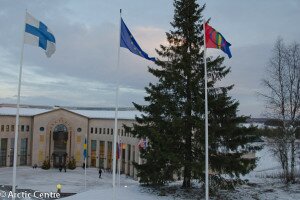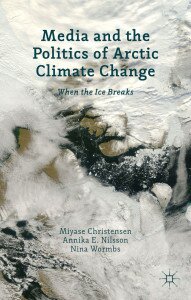

Photo: Dag Avango
A humanities and social science perspective to bridging science and policy in a changing Arctic
För svensk sammanfattning, se nedan.
The Swedish Foundation for Strategic Environmental Research (MISTRA) initiated the Arctic Futures in a Global context programme in order to stimulate research that contributes to the sustainable development in the Arctic. The research addressed tensions between economic, environmental and social aspects of development of the Arctic. Interdisciplinarity and stakeholder integration are increasingly important in research programmes focusing on the Arctic. The final event will focus on the outcomes of the research and communicating the main recommendations from the projects in dialogue with stakeholders and policymakers.The event is structured to include both plenaries and small-group sessions, and participating in the event means contributing to, and shaping its output.
At the nexus of science, policy and journalism
During the day you will have the opportunity to:
- Work hands-on with the results of the research conducted in the Mistra Arctic Futures, and how best to communicate it to policy makers and other stakeholders, in a way that acknowledges the co-production of knowledge.
- Work with perspectives from academia, policy makers, other stakeholders, as well as utilizing the logic of journalism.
- Discovering and discussing the interactions and processes between science, policy and journalism.
The projects you will be working with include:
- Assessing Arctic Futures: Voices, Resources and Governance
- Arctic Games: Interactive development and application of a trans-disciplinary framework for sustainable governance options of Arctic Natural Resources
- From Resource Hinterland to Global Pleasure Periphery? Assessing the Role of Tourism for Sustainable Development in Arctic Communities
- Arctic Futures: Managing Competition and Promoting Cooperation
- Preparing for and responding to disturbance: Arctic lessons for Sweden.
One week before the event you will receive a detailed agenda, including background material, as well as questions for the workshop and a list of other participants.
Please register by 24 February 2014 by sending an e-mail to or using this link:
https://response.easyresearch.se/s.asp?WID=948104&Pwd=89547523
You can also download an invitation here Mistra Arctic Futures Final Event Invitation.
5 mars 2014 arrangeras en avslutande workshop för forskningsprogrammet Mistra Arctic Futures in a Global Context. Forskningsprogrammet har pågått sedan 2011 med Polarforskningssekretariatet som värd. Mistra Arctic Futures får nu en efterföljare i forskningsprogrammet Mistra Arctic Sustainable Development, som ska vidareutveckla forskningen om hur en hållbar utveckling kan ske i Arktis.
Det finns möjlighet att delta på svenska.
Registrera dig här: https://response.easyresearch.se/s.asp?WID=948104&Pwd=89547523












